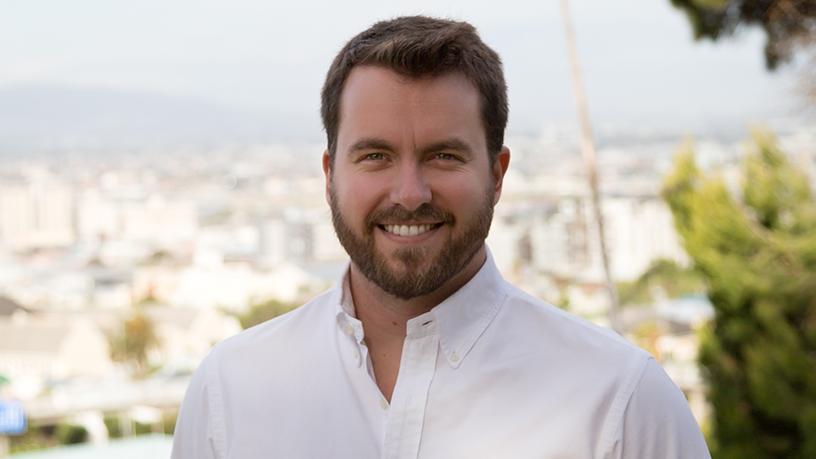
Four-year-old company Cape Networks - which was acquired by networking giant Aruba (itself a Hewlett-Packard Enterprise company) in March - was built on answering one question: what is the user experience on a network?
This is harder to do than it seems. Typically, network administrators are measuring bandwidth or throughput, which is not really taking into account how well applications are functioning. And just because the network is up, doesn't mean it's working optimally.
Cape Networks makes a sleek, 15cm square sensor that monitors network performance and identifies problems that can be fixed remotely.
From Cape to California
David Wilson, a Cape Networks co-founder and its director of engineering, says hardly anything has changed in the day-to-day running of the company since the acquisition, other than it now has more resources with which to work.
"They've told us they love what we're doing, and to do more of it."
One concrete move is scaling up its Cape-based engineering team by 50%. Wilson also now lives in San Francisco, an hour's car ride away from his desk in Santa Clara.
A real benefit is having access to expertise, he says, adding he'd recently spent an hour with some people from HPE Labs - HP Enterprise acquired Aruba in 2015 for $2.7 billion. The terms of the Cape Networks deal were not disclosed.
"(At HPE Labs), there are academics who are researching network performance, and we're really excited about implementing some of the tools they've developed into the Cape Networks product."
Asked what new tools the company was going to roll out, Wilson says they'd recently added a Telnet network protocol test, a system that, in his experience, is typically used by larger customers dealing with inventory management.
He says the relationship with HPE meant Cape Networks could add application tests that would have been very difficult to do 'had we been doing it ourselves'.
It's awesome. It feels like we're a bigger version of ourselves.
David Wilson, Cape Networks co-founder and director of engineering
Wilson says while Aruba is part of HPE, 'it's very much its own thing'. "They say they're the biggest, small company. And it does feel that way."
He adds there had been plenty of interest from other companies before they signed with HPE, but he and his co-founders had felt right at home from their very first meeting with Aruba.
"The continuity of people at Aruba (it's still run by its founder Keerti Melkote) is amazing, and in a way that doesn't seem ossified. They're still very passionate about what they're doing.
"(Our device) is an unusual piece of technology because we sit outside the network, and that's why the big networking companies didn't build this product. But with the data it provides and potential synergy with the data from the rest of the network...I'm excited about the future.
"It feels like we have fast-forwarded. It's awesome. It feels like we're a bigger version of ourselves."
The unusual device that Aruba wanted
So how does that unusual piece of technology work?
The only way to check if a network is working optimally for the user, explains Wilson, is 'to be the user'. "That's what we ended up building, because there's no real other way of doing that."
A person using, say, an airport's or a mall's WiFi network, would perhaps want to know if they could make a Skype call without it breaking up, or if they could stream live video, for instance.
Cape Networks' sensor is installed anywhere there's a significant density of users. It is mounted at waist level, which is typically the height at which most people are accessing their devices. The sensor continually tests WiFi and wireless connectivity and comes configured with a number of target IP addresses or URLs that people will typically use, such as DropBox or Slack, or Office 365. It can, however, be set up to test pretty much anything that is accessible via an IP address, even a printer, says Wilson.
If there's a network problem, IT support can diagnose and fix it without having to drive out to the location. The sensor can also be configured remotely, and while it's being shipped to the customer, Cape Networks will configure the customer's network in the cloud. When the sensor is first powered up, it will turn on its 3G chipset, call the cloud and pull down the configuration, then turn off the 3G and connect to WiFi and start running the tests.
Wilson says when he and his three co-founders were building the device - in a basement in Cape Town - they were warned not to include 3G functionality because it added cost and complexity. They did include it, however, and this turned out to be a stroke of genius, 'because you never lose sight of the device'.
A technician can monitor a sensor 500km away through a simple dashboard using the 3G network.
Share